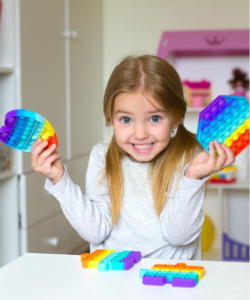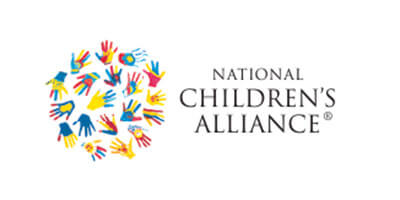COVID -19 brought a lot of changes to everyone’s everyday lives, especially children. Children were used to a schedule, which included going to school and seeing their friends every day. School is a very important part of a child’s socialization process. The Atlantic states that time with other children is an important part of growing up. They also state that the relationships with their peers are how kids learn about cooperation, trust, and loyalty, as well as how not to receive support solely from their parents. Taking social interaction away from children can cause loneliness. This can lead to depression and other mental health issues. Kids may be displaying extreme behaviors, which can include: sleeping all the time or not at all, increased irritability, and changes in weight. The Atlantic also mentions a case where a 15-year-old girl developed an eating disorder because of a series of stressful events, which included disappointment in a school election, fear of losing a family member, and a break-up with her boyfriend. Her normal channel of activities and socializing was no longer an option to handle stress, leading her to develop an eating disorder. Thankfully, the family was able to get her the counseling and medical support she needed in order to recover. An article from Child Trends talks about how to support a child’s emotional well-being during the pandemic. They state that every child’s reactions will vary and that adults can help by showing empathy and patience and calmly setting limits when needed. It is important to note that social distance is not social isolation. An article written by the University of Buffalo states that learning how to stay socially engaged in non-physical ways has suddenly become an essential survival skill because people are struggling with the loss of connection. Although socialization is tough right now, there are still ways to make sure your children connect with others. For example, utilizing technology to let children video chat with friends and family or getting together for outdoor activities with loved ones if safe to do so. Also, Child Trends mentions the importance of practicing the 3 R’s: Reassurance, Routines, and Regulation. In that order parents should:
- Reassure children about their safety and the safety of loved ones
- Maintain routines to provide children a sense of safety and predictability
- Adults should support children’s development of regulation by validating their feelings and encouraging them to engage in activities that help them self-regulate
The three R’s help create a safe physical and emotional environment for children, this is a stressful time for children because they have to learn how to be productive with their school work in the same place, they normally are relaxing in. When children start to respond to the stress, it is important to validate their feelings and help them manage the reactions. Although this time is extremely confusing and stressful for children, it is also stressful for parents that are struggling to figure out how their children can do online school and still work and support their family’s needs. It is important for parents to take care of themselves that way they can better take care of their children. Self-care for the body and the mind is vital in stressful times. Practice self-care by writing down your feelings in a notebook or journal, practicing meditation, practicing mindful breathing, or just doing an activity like running or going for a walk to clear your mind. It is important to know that if you feel stress about your child’s school being online, you are not alone. It may help to reach out to other parents you know that are going through the same thing to talk and brainstorm ways to make online school easier for you and your children while getting support for yourself. Virtual school can have adverse effects on a child’s mental health. However, with their parent’s and teachers’ help, children will be resilient to the changes in their education and personal lives.
Denworth, L. (2020). What Happens When Kids Don’t See Their Peers for Months. The Atlantic. Retrieved 19 August 2020, from https://www.theatlantic.com/family/archive/2020/06/how-quarantine-will-affect-kids-social-development/613381/.
Bartlett, J., Griffin, J., & Thomson, D. (2020). Resources for Supporting Children’s Emotional Well-being during the COVID-19 Pandemic – Child Trends. Child Trends. Retrieved 19 August 2020, from https://www.childtrends.org/publications/resources-for-supporting-childrens-emotional-well-being-during-the-covid-19-pandemic.
Anzalone, c. (2020). Social distancing does not mean social isolation. Buffalo.edu. Retrieved 31 August 2020, from http://www.buffalo.edu/ubnow/stories/2020/04/chang-social-distancing.html.








